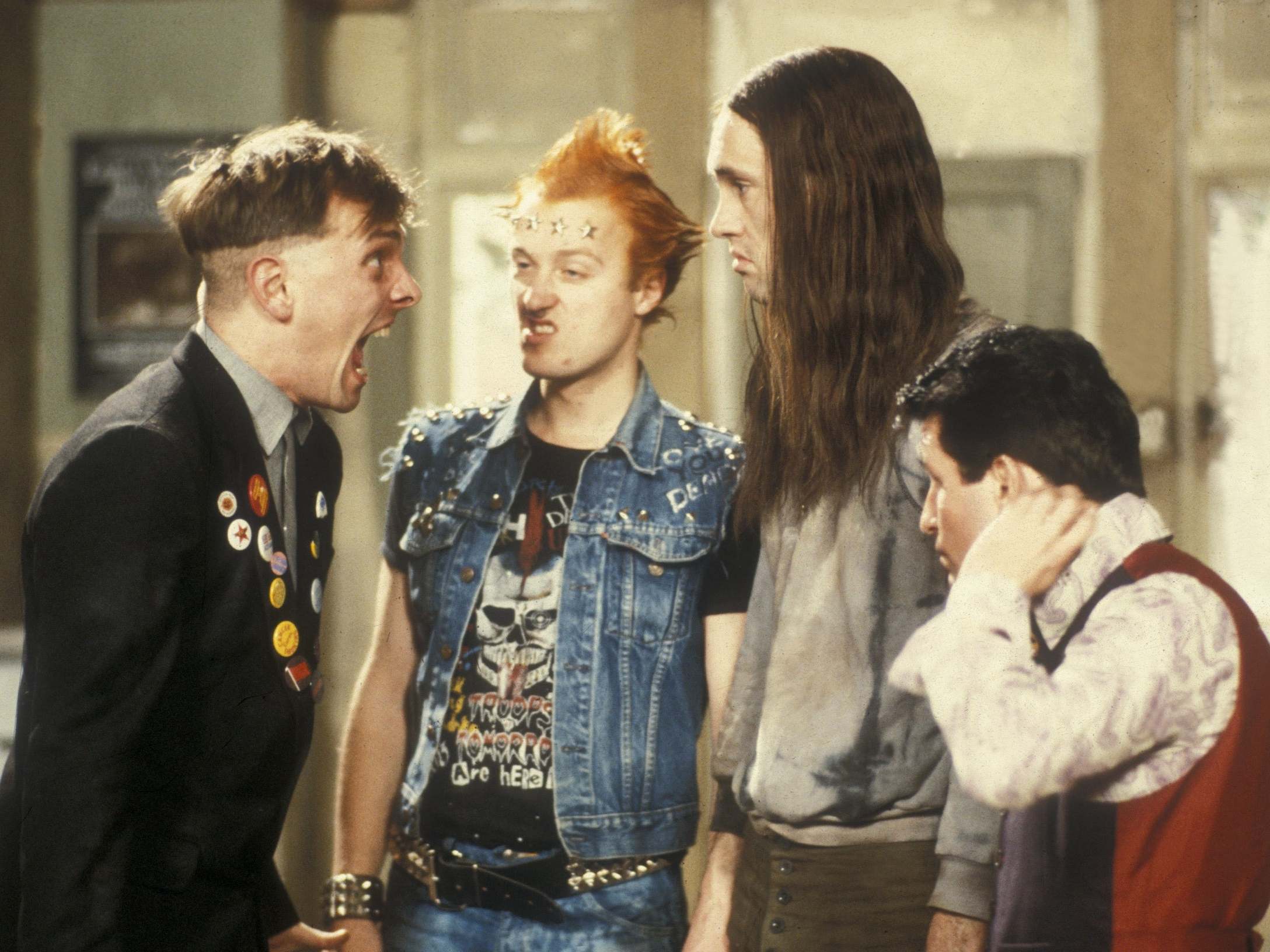I thought using ableist slurs in ‘The Young Ones’ was OK 30 years ago – until I met the people I’d let down
After years of working with disability charities, I want others to put their hands up, admit their mistakes and recognise how powerful and damaging language can be


Your support helps us to tell the story
From reproductive rights to climate change to Big Tech, The Independent is on the ground when the story is developing. Whether it's investigating the financials of Elon Musk's pro-Trump PAC or producing our latest documentary, 'The A Word', which shines a light on the American women fighting for reproductive rights, we know how important it is to parse out the facts from the messaging.
At such a critical moment in US history, we need reporters on the ground. Your donation allows us to keep sending journalists to speak to both sides of the story.
The Independent is trusted by Americans across the entire political spectrum. And unlike many other quality news outlets, we choose not to lock Americans out of our reporting and analysis with paywalls. We believe quality journalism should be available to everyone, paid for by those who can afford it.
Your support makes all the difference.It’s hard to believe it’s been 25 years since Scope, the disability charity got its new name. Particularly when you think about how much has been achieved since that very proud day in 1994, which I was honoured to be a part of.
That name change meant a lot to me. It was part of the steep learning curve which I’d been on regarding the casual prejudice and discrimination disabled people experienced on a daily basis.
The penny had in fact first dropped with a resounding thud back in 1982, when the first series of The Young Ones was broadcast. In it I’d had the character of Rick (who was a desperate tryhard, wannabe cool-kid) insult Vyvyan (the wild punk) with the line: “ooh what are you Vyvyan – a spasmo?”. Of course, I cringe to even write this now and the only plea in mitigation I can offer is that my intention had been that the joke would be on the character of Rick, which was so brilliantly played by the late, great Rik Mayall. I had hoped that he’d look a fool for offering such a tired and witless playground insult as if it was some brilliant Oscar Wilde-style put down.
The letters I received from the parents of kids with cerebral palsy opened my eyes to the reality of what I’d contributed to. The Young Ones was hugely popular with young people at the time and was much quoted in the playground. In our wretched naivety and thoughtlessness, Rik and I had legitimized the use of the word “spastic” as a term of abuse. Any satirical subtlety that I’d hoped for had been lost in the thoughtless cruelty of the playground.
Words matter and language has consequences. You’d think that I, as a writer and a drama graduate, would have known that. But – as I have learned over the years – there really is no limit to the thoughtlessness (often well-meaning) that non-disabled people can show to disabled people. In writing that line in The Young Ones, I proved that I am no exception to that rule.
The upside of this story was that, a few years later, I was able to use the experience in my second novel Gridlock, which featured two disabled people as its heroes. The whole novel was in fact inspired by a chance encounter with a young man who had cerebral palsy. I only met him once, and I’m not even sure I ever even knew his name, but he helped to further open my eyes to my own unconscious prejudice and in doing so, he planted the seed of one of my most successful novels. I wonder if he’s reading this and recalls the encounter? If so – thank you brother! I owe ya!
I met him on one of my early stand-up comedy tours. It was around 1986 or ’87. He was among a group of people who had gathered at the stage door after a gig. I confess that I found it quite hard to understand what he was trying to say to me. Of course, I did my best and we exchanged a few words, during which he told me that he was studying for a Master’s degree in maths.
Even then I was not so ignorant as to presume that this young man’s difficulties with communication reflected his cognitive ability, but I could well imagine how many people he encountered might think that. And how often in his life he must have been underestimated. Even I found myself speaking more slowly and more clearly to him until I remembered that his issues with speech didn’t have anything to do with his ability to hear! It was this encounter that got me thinking about an adventure hero whose superpower was his disability (ha! This was 35 years before the wonderful Greta Thunberg coined the phrase).
I started imagining a brilliant mathematician whose cerebral palsy led people to making the fatal mistake of underestimating him! Geoffrey, the campaigning eco-scientist of Gridlock was born. I always add a comic edge to any of my writing, even in an eco-thriller. Remembering my Young Ones mistake, I had Geoffrey appropriate the insult that had been thrown at him in the playground, spelling it out in studs on his leather jacket as a gesture of defiance, reclaiming the insult in the way the black community had reclaimed the N-word, and turned it into an instrument of empowerment. Of course, I’m not suggesting that “reclaiming” the “s” word would be either useful or appropriate in the real world. This was fiction and I was exploring the power of language, using Geoffrey’s defiance as a way of challenging the readers’ assumptions and also my own. I like to believe my maths-studying friend at the stage door would have approved.
While writing the novel, I thought and read a lot about disability and continued to think about all that underestimated potential. I got so enthused about it that I made the other hero of the book a young woman who has paraplegia. The story was about traffic-induced urban paralysis (Gridlock!) and I figured a girl who had to deal with the issue of urban mobility every second of her life, while fighting to have access to the stuff the rest of us take for granted, might prove a fittingly astute and inventive comrade for Geoffrey.
The other result of that stage door meeting was that I decided to join what was then called the Spastics Society. I wanted to lend my support to disabled people in any way that might be useful, and I also knew that I would personally learn and grow from the experience. A win-win situation!
I don’t think anyone would argue that challenge and adversity bring out the best in humanity. My association with Scope has meant I have had the privilege of meeting many innovative and inspiring people and I am a better person and a better writer because of it.
And so, we have arrived at Scope’s quarter century, celebrating a change of name which was all about the power of language. My association with the charity has taught me so much about that power. Language defines attitude and all too often disabled people are held back by negative attitudes in all areas of life, including work, education or just trying to have a decent night out.
That needs to change. And part of that change means putting our hands up and recognising where we’ve made mistakes, and then doing something about it. That’s why I’m sharing this with you.
It’s also why I’m so looking forward to hosting a big stand-up comedy night for Scope at the wonderful O2 Shepherd’s Bush Empire theatre on the 21 December. I’ll be introducing some brilliant comedians and also making sure I do plenty of routines myself – gotta show these young pretenders how it’s done! It’s going to be a fantastic night and a wonderful way to celebrate the 25th anniversary of that crucial name change.
Ben Elton is a comedian, writer, actor and director. For tickets to “Ben Elton’s Comedy Night for Scope”, click here
Join our commenting forum
Join thought-provoking conversations, follow other Independent readers and see their replies
Comments